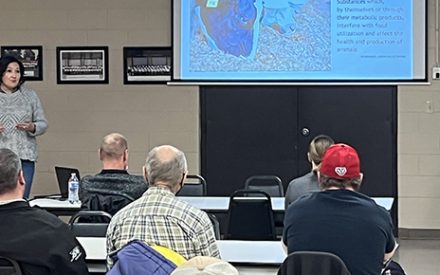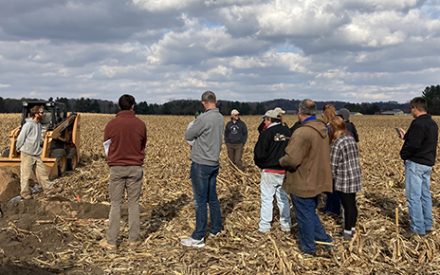Situation
Many Wisconsin farms have primarily relied on family members to provide the necessary labor. As farm businesses across our state grow in size and complexity, their workforces continue to grow and change. Between 2007 and 2017, the number of people employed on farm businesses increased by over 40 percent, from 17,000 to 24,000. (Extension 20181). These workforces include seasonal and/or year-round workers, family members and non-family employees.
“I learned techniques to use in meetings for our staff to resolve issues.”-Workshop Participant
At the same time, many agricultural and related sectors are experiencing worker shortages. Wisconsin is currently in the midst of a competitive labor market. The state’s unemployment rate is low (3.1 percent as compared to the national average of 3.7 percent) and wages are averaging $12.38/ hour. Further, Wisconsin’s rural workforce is decreasing due in part to an aging population and a trend of young people moving away from rural areas.
In a recent study conducted by UW-Madison, dairy managers identified employee turnover as the leading cost associated with human resources management, and significantly higher than broader industry benchmarks. Additionally, effective human resources structures (employee handbooks) and processes (regular employee meetings and regular performance reviews) are not in place in about half the farm operations in Wisconsin. (Extension 2018)
All of these factors – growth in farm business size, increased worker shortages, high rates of employee turnover, and lack of effective human resource structures and process — make it crucial that farm managers build and refine the skills needed to effectively lead and manage.
Response
Extension helps farm leaders acquire the knowledge and skills needed to recruit, motivate, and retain quality people. Whether farms have numerous and significant needs in the areas of human resource management or just want to fine tune their existing practices and policies, Extension works with farm managers to:
- increase awareness of proven methods to recruit, train and motivate staff
- build skills to manage employee conflict
- increase understanding and use of tools to provide constructive feedback
- improve recruiting efforts to result in better quantity and quality of applicants
- increase employee engagement
In 2017-2019, Extension colleagues reached more than 150 farm owners/managers through educational programs in locations around the state, including Brown, Dane, Fond du Lac, and Washington counties. The program curriculum and promotion materials were available in both English and Spanish, and simultaneous interpretation was also available.
Participants indicated that their primary reason for attending was to improve their employee management skills. In addition, two workshops used a train-the-trainer approach to increase the capacity of agriculture consultants, educators, and industry leaders to help farmers address human resource challenges.
Through the use of peer-to-peer learning, these participants built skills in leadership, conflict management, communication, and on-boarding best practices. By using their real-life experiences, they were engaged in broader discussion about what it means to be an effective leader and learned how they can apply those lessons to their management style and practices.
As a result of the classes, participants increased their knowledge about human resources management topics and learned skills to apply on their farm to improve their business culture. The most significant changes for participants were increases in knowledge around how to manage conflict, how to create a positive farm business culture and how to develop a motivated workforce.
Participants further demonstrated understanding of these best practices by implementing them in role play activities. Some continued to explore conflict management together by engaging in an ongoing community of practice.
By providing the groundwork to help them to become better and more effective human resource managers, farm managers can become the employers of choice in today’s very competitive labor market. In the long term, these skills help reduce costly employee turnover and retraining, improve safety through a well-trained and highly engaged workforce, and enhance profits through improved workforce efficiency and productivity.
To learn more about this program, contact:
Trisha Wagner, Farm Management Outreach Program Manager, UW-Madison Division of Extension
Jim Versweyveld, Agriculture Extension Educator, Extension Walworth County
[1] 2018. Jette-Nantel, Simon. Farm Employment in Wisconsin. UW-Madison Center for Dairy Profitability.
Download Article


 Planning to Ensure a Viable Business
Planning to Ensure a Viable Business Economic Viability for Beef Producers
Economic Viability for Beef Producers Improving Farm Profitability
Improving Farm Profitability Sustainability & Profitability of Beef Production
Sustainability & Profitability of Beef Production


